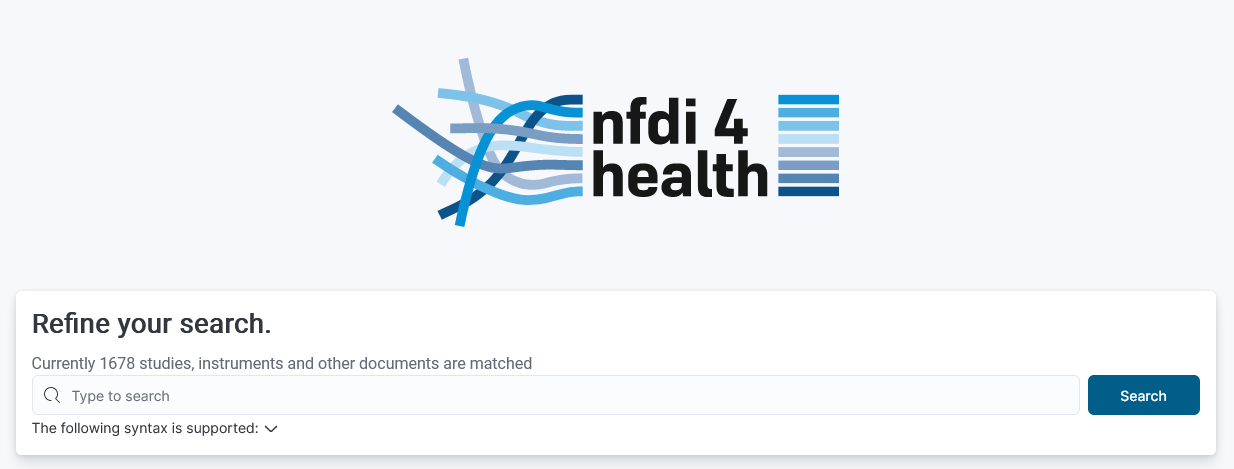Health Study Hub – A platform to find and publish personal health research data
The Health Study Hub is a platform that serves two different kinds of users. First, it allows scientists and data holding organizations (data producers) to publish their project characteristics, documents and data related to their research endeavour in a FAIR manner. Obviously, patient-level data cannot be shared publicly, however, metadata describing the patient-level data along with information about data access can be shared via the platform (preservation description information). The other kind of user is a scientist or researcher (data consumer) that likes to find information about past and ongoing studies and is interested in reusing existing patient-level data for their project. To summarize, the platforms connect data providers with data consumers in the domain of clinical, public health and epidemiologic health research to foster reuse. Since the system is freely accessible via a web browser and provides explanatory information about collected information via an extensive glossary, the system can also be used by scientists of other research domains.
The aim of the Health Study Hub is to make research data from clinical, public health and epidemiological studies as accessible as possible to people and machines. This does not mean, however, that the data are publicly accessible and can be reused without restriction. Rather, the aim is to open up research results and data for new usage scenarios within the legal and technical limits.
Data holders (data producers) can publish their information according to the FAIR principles (Findable, Accessible, Interoperable and Reusable) via a graphical web-based user interface or an interoperable application programming interface (API).
How FAIR are your data? Test your data with our checklist for studies and get a first impression:
As sharing data is often seen as a burden or an afterthought, the process of doing so must be as simple and straightforward as possible. Consequently, information should be collected once and not multiple times. APIs are therefore available to transfer information from existing (internal) systems, and software consultants can assist in developing the necessary transformation processes. Where information cannot be re-used, a graphical data capture form is available and trained data stewards are available to assist with data capture.
The platform aggregates and harmonizes information
In addition, the platform aggregates and harmonizes information already entered in various public repositories such as DRKS, clinicaltrials.gov, WHO ICTRP to provide a holistic view of the German research landscape in the aforementioned research areas. In addition, data stewards actively collect available information from (public) resources such as websites that cannot be automatically integrated.
The inventory of descriptive information and preservation data, either transferred/input by data producers, collected by other repositories or actively collected by data stewards, is an asset used by the platform to enable data consumers (scientists or researchers) to find relevant information about past and ongoing studies and to provide information about access rights. Depending on the data available, semantic search and exploration down to variable and item level is possible. In addition, the system links research artefacts and provides summary statistics on the available data.
The service started during the COVID-19 pandemic
The development of the service started during the COVID-19 pandemic to establish a nationwide COVID-19 research information and advice infrastructure. To ensure the long-term availability of the service, the scope was extended to include personal health research data in Germany, and further development is being carried out within the NFDI4Health project. The number of records grew steadily to over 1600 records in April 2023. Similarly, the number of page visits and registered users grew, indicating increased usability of the service.
As the platform is developed for the community, it must meet the community's requirements and needs. To achieve this, the software is developed interactively with the community (represented by use cases within the project). However, we also invite everyone else to suggest features, ideas, requirements and report bugs to the development team.
 English
English  Deutsch
Deutsch 
